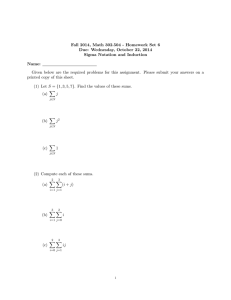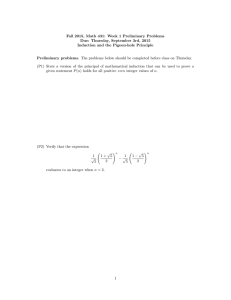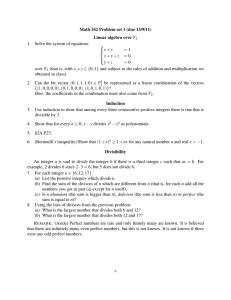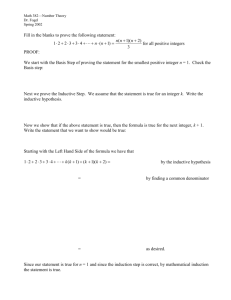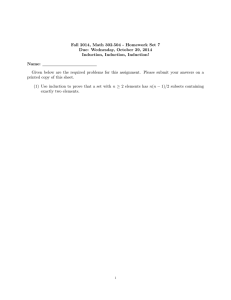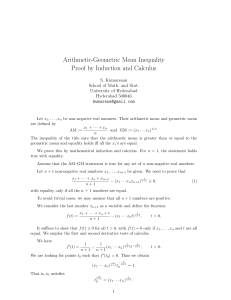A proof of the binomial theorem If n is a natural number, let n! denote
advertisement
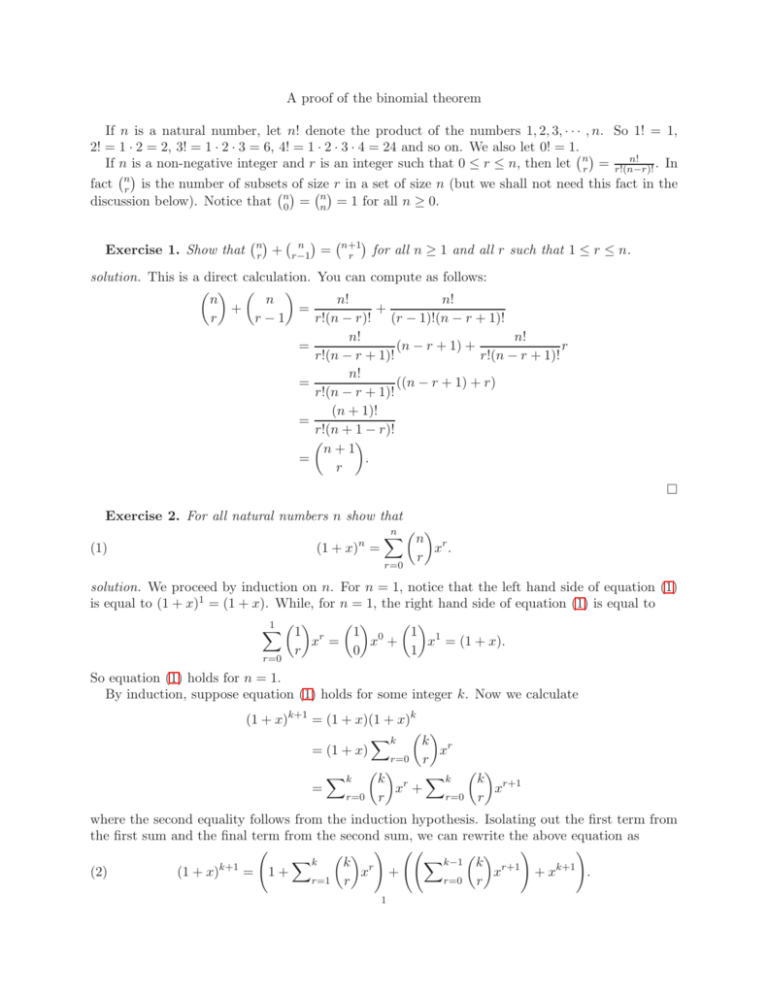
A proof of the binomial theorem If n is a natural number, let n! denote the product of the numbers 1, 2, 3, · · · , n. So 1! = 1, 2! = 1 · 2 = 2, 3! = 1 · 2 · 3 = 6, 4! = 1 · 2 · 3 · 4 = 24 and so on. We also let 0! = 1. n! If n is a non-negative integer and r is an integer such that 0 ≤ r ≤ n, then let nr = r!(n−r)! . In n fact r is the number of subsets of size r in a set of size n (but we shall not need this fact in the discussion below). Notice that n0 = nn = 1 for all n ≥ 0. Exercise 1. Show that n r + n r−1 = n+1 r for all n ≥ 1 and all r such that 1 ≤ r ≤ n. solution. This is a direct calculation. You can compute as follows: n! n n n! + + = r!(n − r)! (r − 1)!(n − r + 1)! r r−1 n! n! = (n − r + 1) + r r!(n − r + 1)! r!(n − r + 1)! n! ((n − r + 1) + r) = r!(n − r + 1)! (n + 1)! = r!(n + 1 − r)! n+1 = . r Exercise 2. For all natural numbers n show that n X n r n (1) (1 + x) = x . r r=0 solution. We proceed by induction on n. For n = 1, notice that the left hand side of equation (1) is equal to (1 + x)1 = (1 + x). While, for n = 1, the right hand side of equation (1) is equal to 1 X 1 r 1 0 1 1 x = x + x = (1 + x). r 0 1 r=0 So equation (1) holds for n = 1. By induction, suppose equation (1) holds for some integer k. Now we calculate (1 + x)k+1 = (1 + x)(1 + x)k X k k = (1 + x) xr r=0 r X k k Xk k = xr + xr+1 r=0 r r=0 r where the second equality follows from the induction hypothesis. Isolating out the first term from the first sum and the final term from the second sum, we can rewrite the above equation as ! ! ! Xk k Xk−1 k (2) (1 + x)k+1 = 1 + xr + xr+1 + xk+1 . r=1 r r=0 r 1 Now we shall rewrite the second sum in equation (2) by changing the index of summation as follows: Xk−1 k Xk k r+1 x = xs r=0 r s=1 s − 1 Xk k = xr . r=1 r − 1 Substituting in equation (2), we obtain ! ! Xk k k r r (1 + x) =1+ x + xk+1 x + r=1 r − 1 r=1 r ! ! Xk k k =1+ + xr + xk+1 r=1 r r−1 ! Xk k + 1 =1+ xr + xk+1 r=1 r ! X k k + 1 k+1 0 k + 1 k+1 r = x + x x + r=1 0 k+1 r Xk+1 k + 1 = xr . r=0 r The second equality above follows by combining the two sums term by term and the third equality above follows from exercise 1. Thus we have argued that if equation (1) holds for n = k, then equation (1) also holds for n = (k + 1). By induction on n, it follows that equation (1) holds true for all natural number n. k+1 Xk 2
